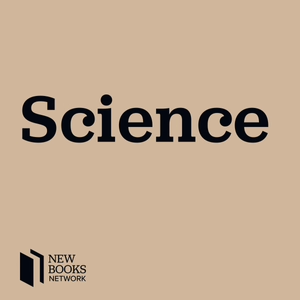
Public Attitudes, Perceptions, and Concern about Global Warming: Evidence from a New Survey
07/23/08 • 107 min
Previous Episode

Coping with Climate Change: Gulf Coast Transportation and New York City Waterworks
Gulf Coast Transportation: Coping with the Future Climate affects the design, construction, safety, operations, and maintenance of transportation infrastructure and systems. The prospect of a changing climate raises critical questions regarding how alterations in temperature, precipitation, storm events, and other aspects of the climate could affect the nation’s roads, airports, rail, transit systems, pipelines, ports, and waterways in the region of the U.S. central Gulf Coast between Galveston, Texas and Mobile, Alabama. This region contains multimodal transportation infrastructure that is critical to regional and national transportation services. More broadly, what happens in the Gulf region will no doubt, have ripple effects nationwide and internationally, as was evident in the aftermath of hurricane Katrina. New York City: Preparing for Climate Change New York City (NYC) represents one of the first substantial efforts to undertake climate-change planning for infrastructure changes in a large urban area. Notable characteristics of the NYC system are that it is a mature infrastructure system, that its managers are skilled at dealing with existing hydrologic variability, and that there are many potential adaptations to the risk of climate change in the NYC water supply, sewer, and wastewater treatment systems. Capitalizing on this expertise and experience, the work of the Climate Change Task Force of the NYC Department of Environmental Protection, has focused on the water supply, sewer, and wastewater treatment systems of NYC. Biographies Michael J. Savonis has 25 years of experience in transportation policy, with extensive expertise in air quality and emerging environmental issues. He has served as Air Quality Team Leader at the Federal Highway Administration (FHWA), since 1996. For the past 16 years, Mr. Savonis has overseen the Congestion Mitigation and Air Quality Improvement Program which invests more than $1.5 billion annually to improve air quality. He directs FHWA’s transportation / air quality policy development, research program, and public education. He received DOT’s Silver Medal in 1997 and FHWA’s Superior Achievement Award in 2004. Dr. Cynthia Rosenzweig is a Senior Research Scientist at the Goddard Institute for Space Studies at Columbia University. Her primary research involves the development of interdisciplinary methodologies by which to assess the potential impacts of and adaptations to global environmental change. She has joined impact models with global and regional climate models to predict future outcomes of both land-based and urban systems under altered climate conditions. Advances include the development of climate change scenarios for impact and adaptation analysis, and the application of impact models at relevant spatial and temporal scales for regional and national assessments. Recognizing that the complex interactions engendered by global environmental change can best be understood by coordinated teams of experts, Dr. Rosenzweig has organized and led large-scale interdisciplinary, national, and international studies of climate change impacts and adaptation. She co-led the Metropolitan East Coast Regional Assessment of the U.S. National Assessment of the Potential Consequences of Climate Variability and Change, sponsored by the U.S. Global Change Research Program, and was the lead scientist on the New York City Department of Environmental Protection Climate Change Task Force.
Next Episode

Keynote Address - AMS workshop on Federal Climate Policy
Herman Daly, Ph.D., delivers the keynote address the recent AMS workshop on Federal Climate Policy. He explores the distinction between economic growth —a quantitative increase in size that is constrained by the physical limits of the Earth system—and economic development—a qualitative improvement in our state of being. In so doing, he helps identify design principles for climate policy that can enhance environmental protection, benefit the economy, and promote political feasibility. Daly is a professor in the School of Public Affairs at the University of Maryland. Previously he served as Senior Economist in the Environment Department at the World Bank, where he helped develop policy guidelines related to sustainable development. He has received numerous awards including the Honorary Right Livelihood Award, Sweden's alternative to the Nobel Prize.
If you like this episode you’ll love
Episode Comments
Generate a badge
Get a badge for your website that links back to this episode
<a href="https://goodpods.com/podcasts/ams-climate-change-audio-environmental-science-seminar-series-esss-586/public-attitudes-perceptions-and-concern-about-global-warming-evidence-61441"> <img src="https://storage.googleapis.com/goodpods-images-bucket/badges/generic-badge-1.svg" alt="listen to public attitudes, perceptions, and concern about global warming: evidence from a new survey on goodpods" style="width: 225px" /> </a>
Copy




